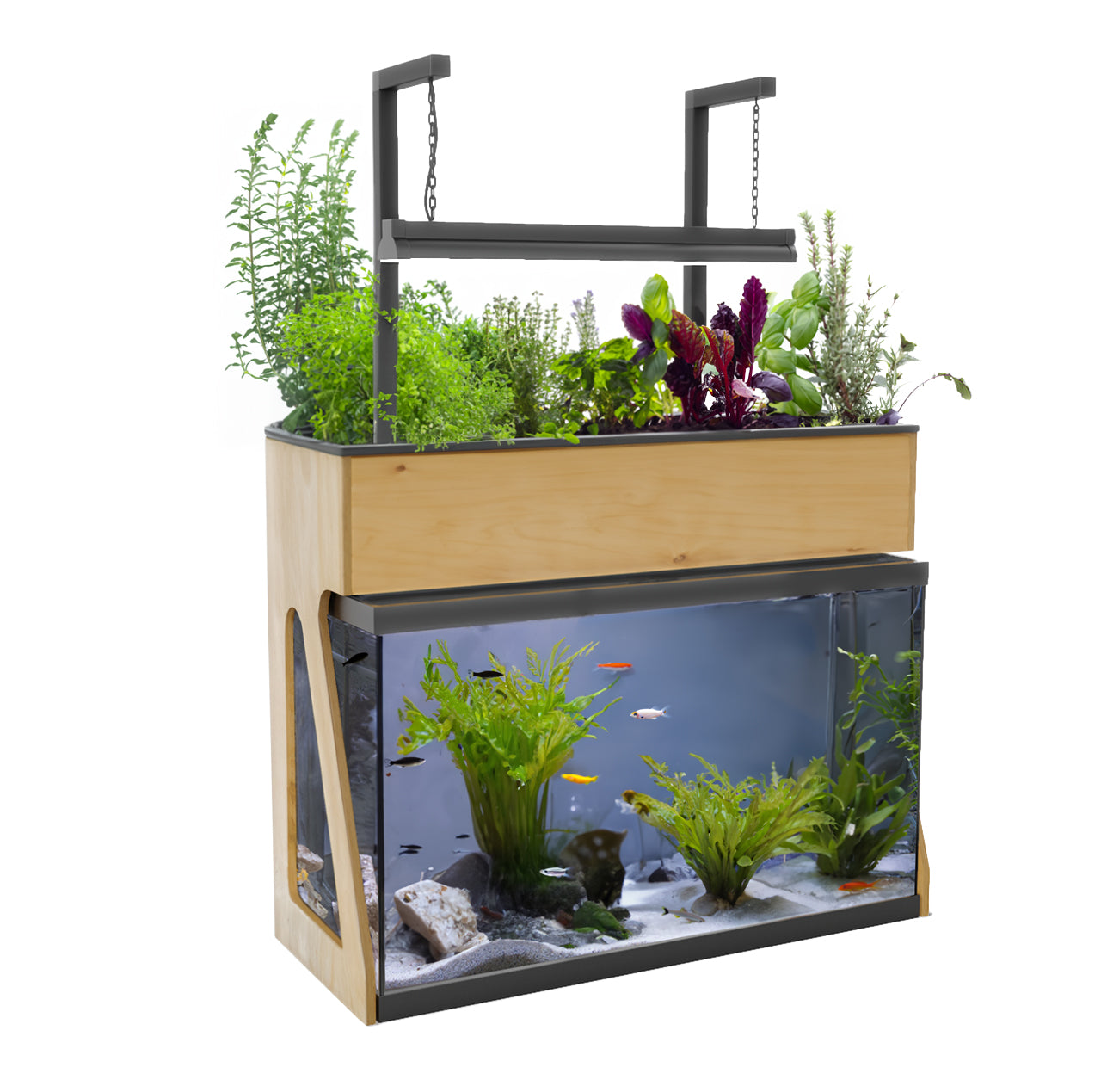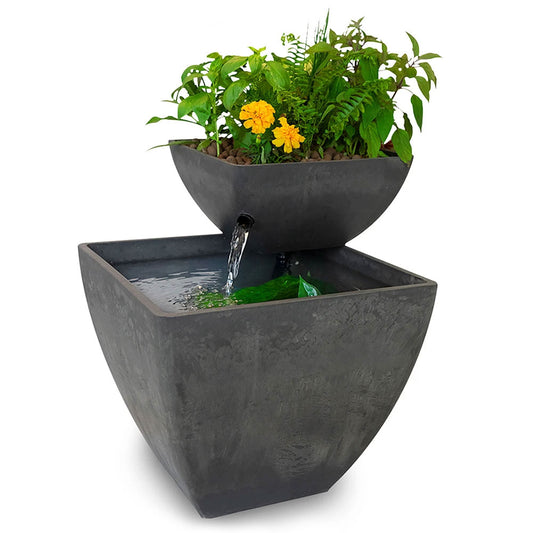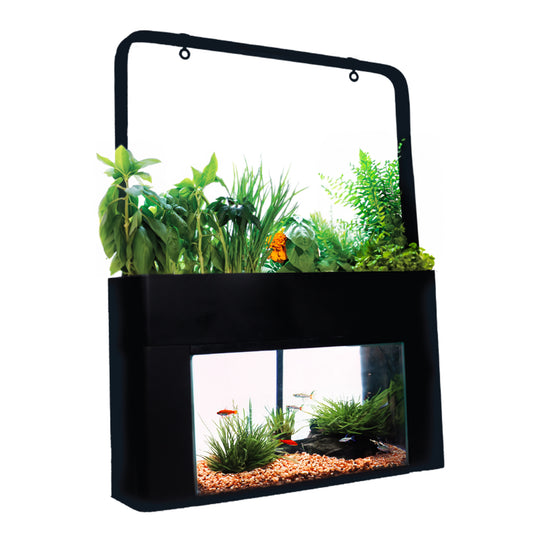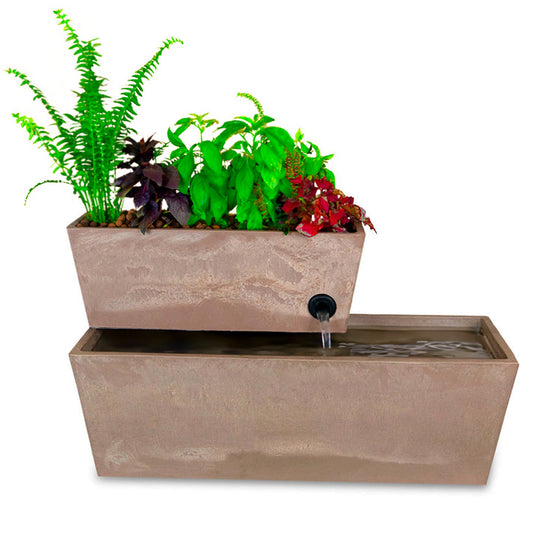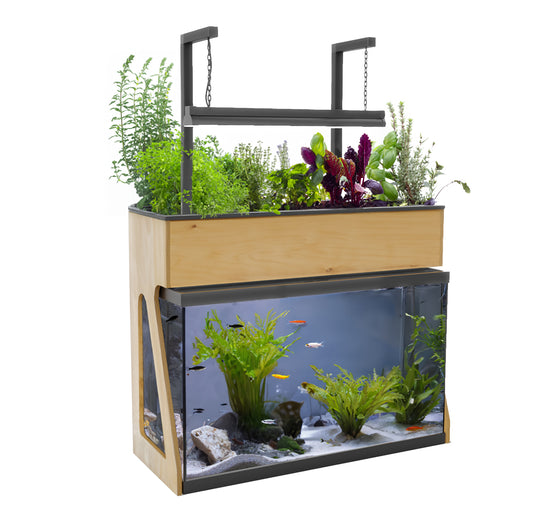CHOOSING FISH FOR YOUR AQUASPROUTS GARDEN
Growing plants is satisfying, and learning about the microbial life that makes aquaponics possible can be interesting, but it’s the fish that add color and excitement to your system. They’re also your primary vehicle for adding nutrients - your fish power your Garden with their wastes! So… what about fish?
The quick answer is that keeping fish with your AquaSprouts Garden is very much like keeping fish in an ordinary aquarium… but a little bit easier. You’ll still need to feed them and maintain good water quality - a catchall term for a variety of chemical and physical characteristics of an aquatic environment - but your plants will be helping you out by absorbing the waste products (Mostly in the form of nitrate - for more information on this waste cycle, see our AquaSprouts Cycling Guide on the blog!) that can otherwise accumulate and necessitate regular water changes to prevent them reaching toxic levels. That means less work for you, and happier, healthier fish!
WHAT KINDS OF FISH CAN I KEEP?
The AquaSprouts Garden can support almost any fish you’d keep in a standard 10-gallon aquarium! That means most of the common aquarium fish species you’re thinking of - many varieties of barbs, tetras, platies, mollies, guppies, danios and other minnows, Corydoras and other small catfish, and many others. The staff at your local aquarium shop are a great resource for recommendations!
There are so many varieties of aquarium fish available that we’ve put together a set of guidelines, rather than a list:
- Keep it small: ten gallons is a great size for an easy-to-maintain home aquarium, but it’s not a lot of room for many fish. Stick to fish whose adult size is less than 3”, and remember, the bigger your fish will get, the fewer of them you’ll have room for. Your tank might comfortably house a dozen small neon tetras, but only three or four adult swordtails, and some species will simply grow too large for ten gallons. (Note: there is a common misconception that fish will “grow to the size of the tank.” It is true that cramped quarters and the accompanying poor water quality will stunt a fish’s growth to some degree, but it will also have a myriad of other negative repercussions on your fish’s health and lifespan.)
- Don’t be basic: aquaponic gardens work best at a pH that’s slightly acidic; this makes many nutrients in the water more available for plants. However, not all fish species will thrive in these conditions. Fish like African cichlids, which come from very hard, basic (as in having a high pH) water will not do well in the conditions the rest of your system will need. Tetras and cory cats, on the other hand, are great examples of species that thrive in a lower pH.
- Tread softly: another chemical parameter related to pH, you’ll also be keeping your water very soft and fairly pure, which is to say it won’t have a lot of salts in it. Some fish do much better in water with a little salt, but your plants won’t tolerate much hardness or salinity.
- Stay in school: most small, friendly or “community” fish are naturally schooling animals. They stick together for protection, and when they’re isolated, they become stressed, which can have a very negative impact on their health, reducing their appetites and making them more vulnerable to disease. If you’re picking a schooling fish like tetras or barbs, try to get a group of at least five or six. They’ll reward you with better color, more activity, and longer lives!
There are also some very popular fish that might come to mind, but won’t be a good fit for your AquaSprouts Garden system. Here are a few to avoid:
- Plecostomus: commonly called suckerfish or simply algae-eaters, these unusual Amazonian fish are often used for algae control, since they use their suction-cup mouths to cling to rocks or the glass side of the tank and scrape it clean. Your Garden, however, won’t grow much algae under most circumstances; your plants should be using up the nutrients the algae needs to grow. Even if you do have some algae growth, however, stay away from Plecos; most of the common species in the aquarium trade can grow to eighteen inches long or more and will very quickly outgrow your tank. Some of the smaller, less common varieties like “Bristlenose” Ancistrus plecos might fit, but you will need to feed them supplemental vegetable- or algae-based foods since they’re unlikely to have enough to eat naturally.
- Hatchetfish: while not an everyday sight, these show up in pet stores often enough to merit a mention. They’re a fascinating fish and they’re great in large tanks. Unless you have a lid on your tank, however, they will very quickly jump out and end up dried out on the floor.
- Snails: snails are not an absolute don’t, but they are added at your own risk; some species, particularly the very common apple or “mystery” snails, are quite capable of leaving the water and may even crawl up to your garden to nibble your plants.
Beyond that, it’s up to you! The AquaSprouts Garden is great for anyone from a novice to the most advanced aquarists, whether you’re keeping a handful of neon tetras or a pair of rare Apistogramma dwarf cichlids.
CAN I USE THE GARDEN WITH SALTWATER FISH?
Aquaponics is fundamentally a freshwater endeavor; crops just don’t like to grow in saltwater. If you’re planning to grow plants in your garden, sadly, no, it won’t work for salt. If you like to tinker, however, and you end up using the Garden in some way for a saltwater system, let us know! We love to hear about people playing and experimenting with our creations.
WHAT ABOUT TURTLES OR OTHER REPTILES?
While small turtles might do well with the right tank setup and an AquaSprouts Garden, reptiles commonly carry salmonella, a bacterium which can cause food poisoning and serious illness. We strongly advise against keeping them with your Garden if you plan to grow herbs or food crops. (The majority of turtles commonly kept as pets also grow much too large for a 10-gallon aquarium. Almost without exception, "small" turtles are juveniles which will need a pond environment as they mature, no matter what the seller says!)
